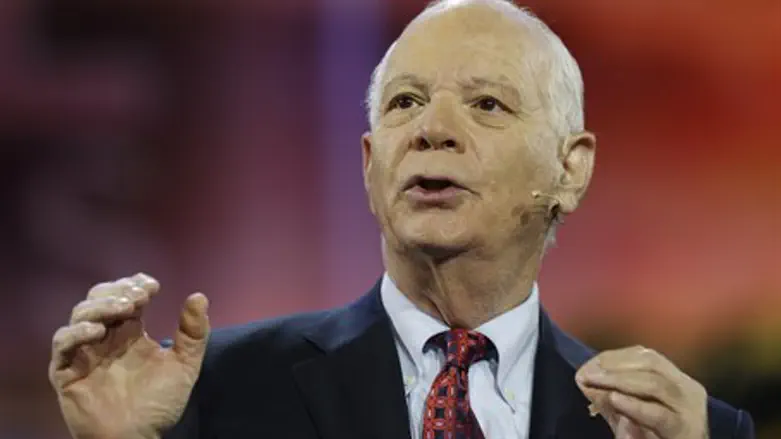
Senator Ben Cardin (D-MD), the top Democrat on the Senate Foreign Relations Committee, on Friday officially announced he will oppose the nuclear deal with Iran, Politico reports.
Cardin's decision, which came the same day a 38th Senate Democrat, Michael Bennet of Colorado, declared for his support for the deal, has been one of the most anticipated among lawmakers. Not only is Cardin a key foreign relations committee member, but he's also Jewish and helped author a bill that gave Congress review power over the agreement.
The senator told Politico that he thought long and hard, and weighed concerns raised by both supporters and opponents, including conservative pro-Israel organizations that have spent millions lobbying against the deal.
In making the decision he described as in the "best interest of the country," Cardin said it came down to his belief that the deal would strengthen Iran in the long run while allowing it to keep too much nuclear capacity.
"It allows Iran to have too much of [a uranium] enrichment program that takes them too close to a nuclear program under a legal path that, with the enhanced resources, will make re-imposing sanctions less likely to be effective," he told Politico.
Cardin added that he, with the backing of lawmakers on both sides of the issue, was planning to introduce legislation that would make clear the steps the United States will take against Iran if it violates the nuclear deal. The bill will include provisions such as regular reports from the administration how Iran is spending resources it obtains thanks to sanctions relief as well as a new security package for Israel, Cardin said.
Cardin joins New York's Chuck Schumer and New Jersey's Bob Menendez as Democrats who have announced that they will vote against the deal, which Congress has until September 17 to approve or reject.
President Barack Obama, however, has already secured the 34 Senate votes he needs to ensure that a resolution to kill the Iran deal would withstand a veto, something Cardin, who was still undecided at the time, had predicted earlier this week.
Obama is now looking for the 41 votes needed to allow for a filibuster that would keep the vote from happening.
Asked about Cardin's decision to support the deal, a senior administration official said, "We never expected to get him."
Republicans, meanwhile, praised Cardin. Senator Bob Corker of Tennessee, who chairs the foreign relations committee, said Cardin had approached the issue in an "incredibly deliberate and thoughtful way."
Although Cardin is rejecting the Iran deal, the White House secured another key Democratic vote in favor of the nuclear accord in Bennet, noted Politico.
"Our primary objectives are to prevent Iran from having a nuclear weapon, make sure Israel is safe and, if possible, avoid another war in the Middle East," Bennet said in a statement, according to the Denver Post. "This agreement represents a flawed, but important step to accomplish those goals."
Bennet’s support is particularly notable because he is the only vulnerable incumbent Democratic senator running for re-election, and Republicans are sure to attack his “yes” vote heavily during the campaign.
According to Politico, remaining undecided Senate Democrats include: Sen. Richard Blumenthal of Connecticut, Ron Wyden of Oregon, Joe Manchin of West Virginia, Gary Peters of Michigan and Maria Cantwell of Washington. If three of them declare their support for the Iran deal, Senate Democrats will have enough votes to filibuster the disapproval measure of the nuclear agreement.
(Arutz Sheva’s North American desk is keeping you updated until the start of Shabbat in New York. The time posted automatically on all Arutz Sheva articles, however, is Israeli time.)
